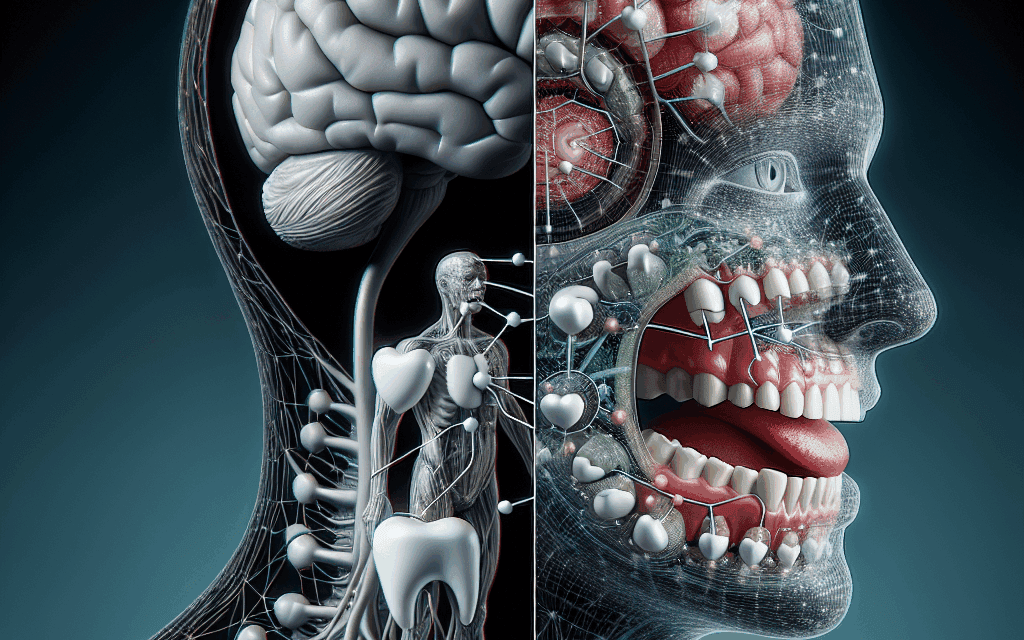The Connection Between Oral Health and Overall Wellness
Oral health is often overlooked in discussions about overall wellness, yet it plays a crucial role in our physical, mental, and emotional well-being. The mouth is not just a gateway for food; it is a complex ecosystem that can significantly influence our health. This article explores the intricate relationship between oral health and overall wellness, delving into five key subtopics: the impact of oral health on systemic diseases, the connection between oral health and mental health, the role of oral hygiene in preventing chronic conditions, the influence of diet on oral health, and the importance of regular dental check-ups. Each section will provide valuable insights, supported by research, statistics, and real-world examples.
1. The Impact of Oral Health on Systemic Diseases
Oral health is intricately linked to various systemic diseases, including cardiovascular disease, diabetes, and respiratory infections. Research has shown that poor oral hygiene can lead to the development of periodontal disease, which is characterized by inflammation and infection of the gums. This condition can have far-reaching effects on the body, contributing to systemic inflammation and increasing the risk of chronic diseases.
For instance, studies have demonstrated a strong correlation between periodontal disease and cardiovascular health. The American Heart Association has reported that individuals with gum disease are nearly twice as likely to suffer from heart disease. The underlying mechanism is thought to involve the bacteria from infected gums entering the bloodstream, leading to inflammation and the formation of arterial plaque.
- Diabetes: There is a bidirectional relationship between diabetes and oral health. Individuals with diabetes are more susceptible to infections, including gum disease, while periodontal disease can make it more challenging to control blood sugar levels. A study published in the Journal of Periodontology found that treating gum disease in diabetic patients improved their glycemic control.
- Respiratory Infections: Poor oral health can also contribute to respiratory infections. Bacteria from the mouth can be aspirated into the lungs, leading to pneumonia and other respiratory conditions. A study in the American Journal of Respiratory and Critical Care Medicine found that patients with poor oral hygiene had a higher incidence of pneumonia.
- Pregnancy Complications: Pregnant women with periodontal disease are at a higher risk for complications such as preterm birth and low birth weight. The inflammation caused by gum disease can affect the overall health of both the mother and the fetus.
These examples illustrate the importance of maintaining good oral health not just for a healthy mouth, but for overall systemic health. Regular dental check-ups and proper oral hygiene practices can significantly reduce the risk of developing these chronic conditions.
2. The Connection Between Oral Health and Mental Health
The relationship between oral health and mental health is a growing area of research. Poor oral health can lead to significant psychological distress, while mental health issues can adversely affect oral hygiene practices. This bidirectional relationship highlights the importance of addressing both aspects in a holistic approach to wellness.
Individuals with poor oral health often experience low self-esteem, social anxiety, and depression. The visible effects of dental issues, such as missing teeth or gum disease, can lead to embarrassment and social withdrawal. A study published in the Journal of Affective Disorders found that individuals with dental problems were more likely to report symptoms of depression and anxiety.
- Self-Esteem and Social Interaction: Oral health issues can significantly impact an individual’s self-esteem. People may avoid social situations due to embarrassment about their teeth or breath, leading to isolation and further mental health decline.
- Stress and Oral Hygiene: Mental health conditions such as depression and anxiety can lead to neglect of oral hygiene. Individuals may lack the motivation to brush and floss regularly, exacerbating existing dental problems.
- Oral Health as a Reflection of Mental Health: Conversely, poor oral health can be a sign of underlying mental health issues. Conditions like eating disorders can lead to severe dental problems, including enamel erosion and tooth decay.
Addressing oral health in mental health treatment plans can improve outcomes for individuals struggling with both issues. Encouraging regular dental visits and providing education on oral hygiene can help mitigate the psychological effects of poor oral health.
3. The Role of Oral Hygiene in Preventing Chronic Conditions
Maintaining good oral hygiene is essential for preventing chronic conditions that can affect overall wellness. Simple practices such as brushing, flossing, and regular dental visits can significantly reduce the risk of developing serious health issues.
Oral hygiene practices help to remove plaque, a sticky film of bacteria that forms on teeth. If not removed, plaque can harden into tartar, leading to gum disease and tooth decay. The Centers for Disease Control and Prevention (CDC) reports that nearly half of adults aged 30 and older have some form of gum disease, which can lead to tooth loss and other health complications.
- Brushing and Flossing: Brushing twice a day with fluoride toothpaste and flossing daily are fundamental practices for maintaining oral health. These habits help to remove food particles and plaque, preventing cavities and gum disease.
- Regular Dental Check-Ups: Visiting the dentist at least twice a year for cleanings and check-ups is crucial for early detection and treatment of dental issues. Dentists can identify signs of gum disease, cavities, and other oral health problems before they become serious.
- Education and Awareness: Public health campaigns aimed at educating individuals about the importance of oral hygiene can lead to better health outcomes. Programs that promote brushing, flossing, and regular dental visits can help reduce the prevalence of oral diseases.
By prioritizing oral hygiene, individuals can significantly lower their risk of developing chronic conditions, leading to improved overall wellness. The link between oral health and systemic diseases underscores the importance of integrating oral care into general health practices.
4. The Influence of Diet on Oral Health
Diet plays a pivotal role in maintaining oral health and preventing dental diseases. The foods we consume can either promote or hinder oral health, making dietary choices a critical aspect of overall wellness.
Foods high in sugar and acid can contribute to tooth decay and erosion. When sugar is consumed, bacteria in the mouth produce acid that attacks tooth enamel, leading to cavities. The World Health Organization (WHO) recommends limiting free sugars to less than 10% of total energy intake to reduce the risk of dental caries.
- Healthy Foods for Oral Health: Incorporating fruits, vegetables, whole grains, and dairy products into the diet can promote oral health. Foods rich in calcium, such as cheese and yogurt, help strengthen teeth, while crunchy fruits and vegetables can help clean teeth naturally.
- Hydration: Drinking plenty of water is essential for maintaining saliva production, which helps neutralize acids in the mouth and wash away food particles. Water is the best choice for hydration, as sugary drinks can contribute to tooth decay.
- Avoiding Harmful Foods: Limiting the intake of sugary snacks, sodas, and acidic foods can significantly reduce the risk of dental problems. Educating individuals about the impact of their dietary choices on oral health is crucial for promoting better habits.
By making informed dietary choices, individuals can support their oral health and, in turn, their overall wellness. A balanced diet not only benefits teeth and gums but also contributes to overall physical health.
5. The Importance of Regular Dental Check-Ups
Regular dental check-ups are essential for maintaining oral health and preventing serious health issues. These visits allow for early detection and treatment of dental problems, which can have significant implications for overall wellness.
During a dental check-up, a dentist will perform a thorough examination of the teeth, gums, and mouth. They will look for signs of cavities, gum disease, and other oral health issues. Additionally, professional cleanings help remove plaque and tartar that regular brushing may miss.
- Early Detection: Regular check-ups enable dentists to identify potential problems before they escalate. For example, catching gum disease in its early stages can prevent tooth loss and other complications.
- Oral Cancer Screenings: Dentists also perform oral cancer screenings during check-ups. Early detection of oral cancer can significantly improve treatment outcomes and survival rates.
- Personalized Care: Regular visits allow dentists to provide personalized care and recommendations based on an individual’s oral health needs. This tailored approach can lead to better health outcomes.
In conclusion, regular dental check-ups are a vital component of maintaining oral health and overall wellness. By prioritizing these visits, individuals can take proactive steps toward preventing serious health issues.
Conclusion
The connection between oral health and overall wellness is undeniable. Poor oral health can lead to systemic diseases, mental health issues, and chronic conditions, while good oral hygiene practices, a balanced diet, and regular dental check-ups can significantly enhance overall well-being. By understanding the importance of oral health and taking proactive steps to maintain it, individuals can improve their quality of life and reduce the risk of serious health complications.
As we continue to explore the intricate relationship between oral health and overall wellness, it becomes clear that prioritizing oral care is essential for achieving optimal health. By fostering awareness and encouraging healthy habits, we can pave the way for a healthier future for ourselves and our communities.





